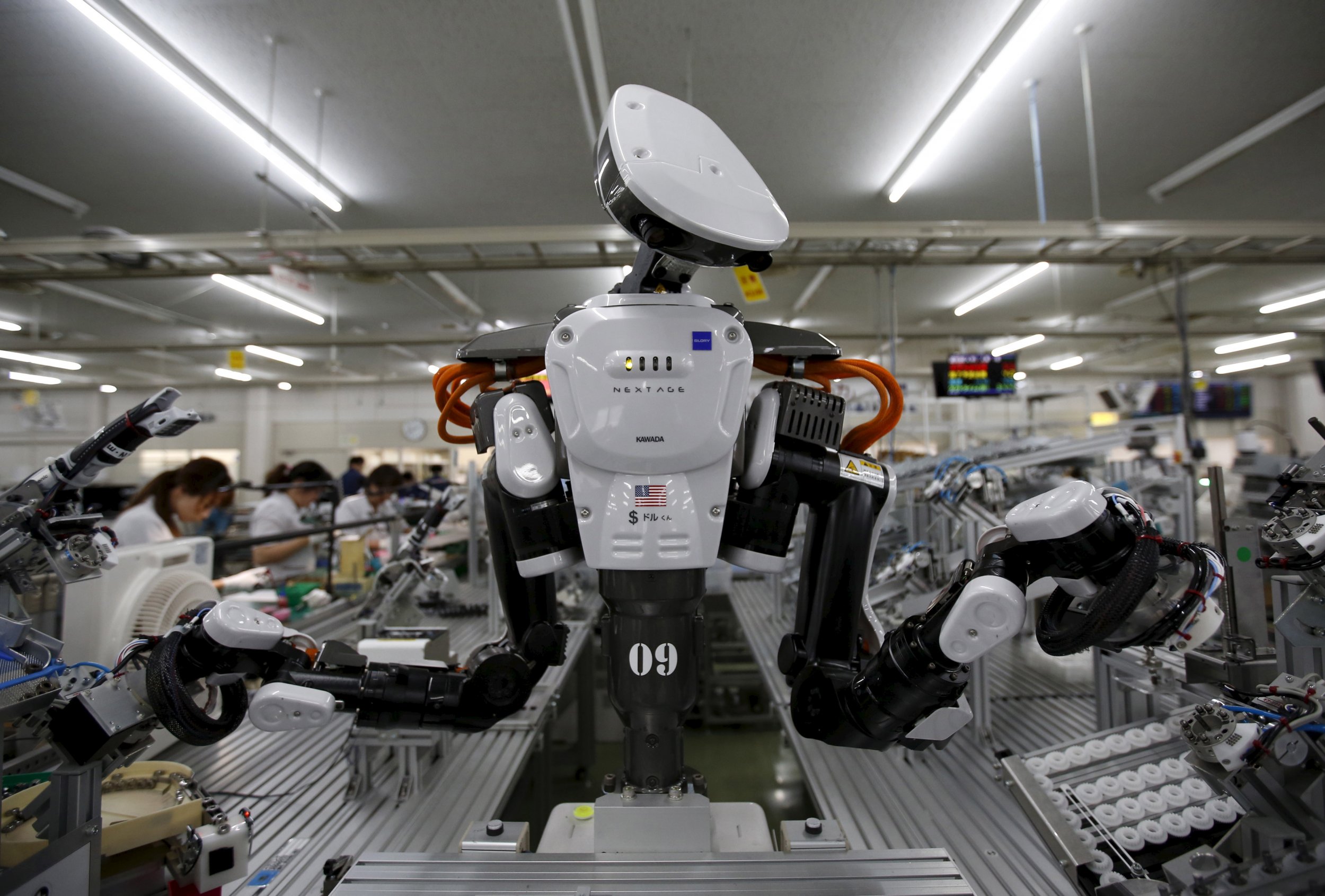
President Donald Trump's tax reform plan would give a big break to robots.
The plan that Republicans call a "jobs bill" in fact encourages corporations to send work offshore and replace labor with machines, negating Trump's campaign promise to bring back American jobs.
Tax advantages for businesses make up the vast majority of the Senate tax plan, at 60 percent of the total cost. Some of these incentives are structured to incentivize companies to automate and reduce American jobs.
"We are creating huge subsidies in our tax code for capital and encouraging employers to use machines instead of labor," said Daron Acemoglu, an MIT economics professor.
The bill includes a provision called "Full and Immediate Expensing" that allows a company to deduct the cost of any new asset right away instead of when it sells the asset or as deductions depreciate over time. That means a company can take out a cheap loan, use it to purchase an expensive machine, and write it off immediately. Some economists argue that this could spur companies to favor automation over jobs and to invest in robots over people.
For example, if an employer had the option of hiring a worker and paying her $1 million over 10 years or buying a $1 million machine that will perform the same task, the machine ends up being cheaper because of the tax incentive.
The Trump administration and Republican senators argue that more capital investment will increase worker productivity and wages, but that would only apply to workers that remain in the labor force, "not those who are ousted by new technology and investment," said William Gale, senior fellow at the Brookings Institution and co-director of the Tax Policy Center. "The last 30 years of anemic wage growth suggest that workers may well be left behind."
Between 2000 and 2010, nearly 87 percent of manufacturing job losses came from an increase in automation and better technology, a Ball State University study found. Thirty-eight percent of U.S. jobs could be lost to automation in the next 15 years, according to PricewaterhouseCoopers.
"This is not the free market at work; we do not have a level playing field. The government clearly favors capital over labor," said Acemoglu.
Economists say that the tax plan would also encourage corporations to outsource jobs and keep profits overseas.
American corporations' profits currently get taxed at the same ratio whether they're earned abroad or at home. But profits made internationally aren't taxed in the U.S. until they're moved from a foreign subsidiary to their American parent company. Companies typically don't want to return their money to the U.S. because they'd be required to pay a 35 percent tax on it. So instead about $2.6 trillion is stranded abroad.
The Senate GOP plan would require companies to pay a one-time tax rate on existing overseas profits, 10 percent on cash assets and 5 percent on non-cash assets. It would also change the U.S. to a territorial system, meaning that all new income earned overseas would be permanently excluded from U.S. income tax.
"I worry about that (because) it seems like the Senate GOP is lauding tax breaks on multinationals who are already doing well," said Jared Bernstein, senior fellow at the Center on Budget and Policy Priorities and former economic adviser to Vice President Joe Biden.
Under the territorial plan, the cost of production in the U.S. would increase, Bernstein explained. Instead of encouraging companies to repatriate dollars, the low tax rate would encourage employers to shift production overseas.
Union advocates say the bill pits labor against capital and leads to outsourcing.
"We've already seen that this bill is a job killer in terms of outsourcing and these issues of timing around tax deductions for human capital versus physical capital seem likely to make it even more of a job killer," AFL-CIO policy director Damon Silvers told Newsweek.
In December 2016, Trump told employees at a Carrier factory in Indiana that companies "are not going to leave the U.S. anymore without consequences." In March, Treasury Secretary Steve Mnuchin told reporters that he "wasn't worried at all" about automation reducing jobs.
Corporations stand to gain at least $2 trillion from these cuts over the next decade, according to the non-partisan Tax Policy Center.
Uncommon Knowledge
Newsweek is committed to challenging conventional wisdom and finding connections in the search for common ground.
Newsweek is committed to challenging conventional wisdom and finding connections in the search for common ground.
About the writer
Nicole Goodkind is a political reporter with a focus on Congress. She previously worked as a reporter for Yahoo Finance, ... Read more





